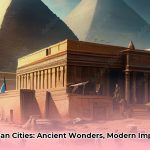“`markdown
Jesus is the Word: Unveiling God’s Incarnation
Ever wonder what it really means when the Bible says Jesus is the Word? It’s more than just a catchy phrase. It’s a key to understanding who Jesus is and what God is like. This isn’t some dusty, academic concept; it’s a transformative truth that impacts how we see God, ourselves, and the world around us. Let’s unravel this profound truth together. For a deeper dive into Jesus’ role in the Bible, check out this helpful resource: Jesus in the Bible.
Jesus as the Word: Exploring Divine Revelation
The concept of Jesus as the Word has intrigued and inspired believers for centuries. It’s far richer and more profound than many initially realize. Exploring divine revelation through Jesus, the Word, can significantly deepen our understanding of faith, leading to a more intimate relationship with God.
Echoes of the Logos: Unveiling Ancient Influences
Long before the birth of Jesus, the concept of “Logos” existed in ancient Greek philosophy. Philosophers, like Heraclitus and later the Stoics, used this term to describe the underlying principle of reason, order, and divine communication that permeated the universe. Think of it as the blueprint for existence, the invisible force connecting the divine realm to the physical world. Philo of Alexandria, a Jewish philosopher, further developed the concept, bridging Greek thought with Jewish theology. While not exactly the same as the Christian understanding, this philosophical grounding provided fertile ground for the later understanding of Jesus as the Word, a whisper of the truth to come. The Logos concept acted as a framework for expressing new ideas about divine communication.
The Old Testament’s Voice: A Promise of Divine Communication
The Old Testament is replete with instances where “the Word of God” is mentioned. It’s not just about spoken words; it implies God’s creative power, authority, and active presence in the world. When God spoke, as described in Genesis 1, things were created. His commands weren’t mere pronouncements; they were acts of creation, shaping the universe itself. Psalm 33:6 says, “By the word of the Lord the heavens were made, and by the breath of his mouth all their host.” God’s word wasn’t just sound; it was the force that brought everything into being. This intimate connection between God’s speech and His actions prepares us for the profound idea that Jesus is the Word made flesh. It’s a foreshadowing, a promise hinted at throughout the Old Testament scriptures. Prophetic utterances, such as Isaiah 55:11, served as echoes of this promise, declaring that God’s word “shall not return to me empty, but it shall accomplish that which I purpose.”
John 1:1-14: The Gospel’s Revelation and Incarnation
The Gospel of John famously begins with the powerful statement: “In the beginning was the Word, and the Word was with God, and the Word was God.” (John 1:1). This isn’t just a poetic sentence; it’s a core theological statement that identifies Jesus as the Logos, the divine Word, not just a message, but a person, co-eternal with God. The passage explains that this Word, eternally existing with God, became incarnate—God in human form (John 1:14). This is the incarnation—a pivotal concept where the eternal God chose to enter human history, taking on flesh and dwelling among us. As theologian Karl Barth argued, the incarnation is the ultimate act of God’s self-revelation, a tangible display of God’s love and grace. How could we otherwise fully comprehend the divine nature? This is where the fullness of God’s character is revealed most completely.
Jesus: Revealing Compassion and Divine Nature
Jesus’ life, death, and resurrection – these weren’t just historical events; they’re the culmination of God’s self-revelation. Through Jesus, we witness God’s compassion, justice, mercy, and overwhelming love. His teachings, particularly the Sermon on the Mount (Matthew 5-7), actions such as healing the sick and feeding the hungry (Matthew 14:13-21), and ultimately, His sacrificial death on the cross (John 19:16-30), unveil the very essence of God’s being. He didn’t just tell us about God’s love; He showed us. Jesus, as the Word, perfectly embodies and expresses the divine nature in a way no other event or scripture could. Jesus’s sacrifice embodies divine nature and ultimate love, demonstrating God’s willingness to reconcile humanity to Himself.
The Living and Written Word: Complementary Aspects
The Bible, in a sense, is the written word of God, a record of His revelation and interactions with humanity. As 2 Timothy 3:16-17 states, “All Scripture is God-breathed and is useful for teaching, rebuking, correcting and training in righteousness, so that the servant of God may be thoroughly equipped for every good work.” But Jesus is the living Word, the personification of that revelation. The Bible guides us toward Jesus, highlighting His life, death, and resurrection. It illuminates the path to the living Word, the ultimate source of truth, grace, and understanding. The written word serves as a map, pointing us to the ultimate destination: Jesus. It is the living word that brings scripture to life, giving it meaning and relevance for our lives.
Understanding Through Jesus: Transforming Our Relationship
If Jesus is the Word, then understanding Jesus is understanding God. As Jesus himself said, “Anyone who has seen me has seen the Father” (John 14:9). This isn’t just an intellectual exercise; it’s a personal invitation to engage deeply with Jesus’ life and teachings. It’s a call to seek Him, to know Him, to develop a relationship with Him through prayer, study, and obedience. It’s a pathway to a transformative relationship with the very source of being and existence. This simple yet profound truth fundamentally shapes Christian faith and everyday life. How does this understanding reshape our relationship with the Divine? It’s through embracing God’s existence, as revealed in Jesus, that our transformation occurs, leading to a life of purpose and meaning.
Intertwined Aspects of the Word: Living and Written
Some theologians propose that there are two intertwined aspects of God’s revelation:
| Concept | Description |
|---|---|
| Jesus – The Living Word | The fully God and fully human embodiment of God’s self-revelation; The personal, relational expression of God (John 1:14, Hebrews 1:1-3). |
| The Written Word (Bible) | The written record of God’s interaction with humanity, pointing toward Jesus as the ultimate Word (2 Timothy 3:16, 2 Peter 1:20-21). |
It’s important to note that the Bible, itself, is not God, but it holds a sacred place as the divinely inspired record which directs us towards an understanding of the Living Word. As Peter declared, these writings came not by human will, but by the Holy Spirit guiding the authors (2 Peter 1:21).
This understanding of “Jesus is the Word” is not just a theological puzzle; it’s a transformative truth that reshapes our relationship with God and the world. It’s a journey of continuous discovery, leading us into a deeper understanding of the divine love revealed in Jesus Christ. It’s a concept that continues to invite deeper study and reflection, revealing new layers of meaning with each encounter. The transformative truth invites a deeper understanding of the divine, leading to a more profound and fulfilling spiritual life.
Reconciling Philosophies: Jesus as the Logos Explained
How does Jesus as the Logos reconcile Greek philosophy and Jewish theology?
Key Takeaways:
- John’s Gospel uniquely portrays Jesus as the Logos, bridging Greek philosophical concepts of a divine principle of reason and order with Jewish understandings of God’s active word in creation and revelation.
- This portrayal offers a powerful theological statement accessible to diverse audiences, both Jewish and Greco-Roman, in the first century and beyond.
- The precise relationship between John’s Logos and similar concepts in Greek thought remains a subject of ongoing scholarly debate, with some scholars arguing for direct influence and others emphasizing the distinctiveness of John’s theological vision.
- Understanding the nuances of John 1:1–14 is crucial for grasping the implications of Jesus as the Logos, including His pre-existence, divinity, and role in creation and redemption.
- Jesus, as the Logos, is both the eternal God and the incarnate savior, fulfilling both philosophical longings and theological expectations.
Examining Greco-Roman Influences on Divine Order
Before Christianity, the concept of Logos existed in Greek philosophy. Philosophers viewed it as an organizing principle, divine reason, or even a cosmic force that brought order to the universe. Think of it as the blueprint or architect of reality. Heraclitus saw the Logos as the underlying principle of change, while the Stoics saw it as inherent in the cosmos, governing all things. Philo of Alexandria, a Hellenistic Jewish philosopher, described it as a divine intermediary between God and the world, a concept that shares some similarities with John’s portrayal of Jesus. This pre-existing framework provided a fertile ground for the Gospel of John’s revolutionary claim. Can you imagine their surprise at its fulfillment in the person of Jesus?
















